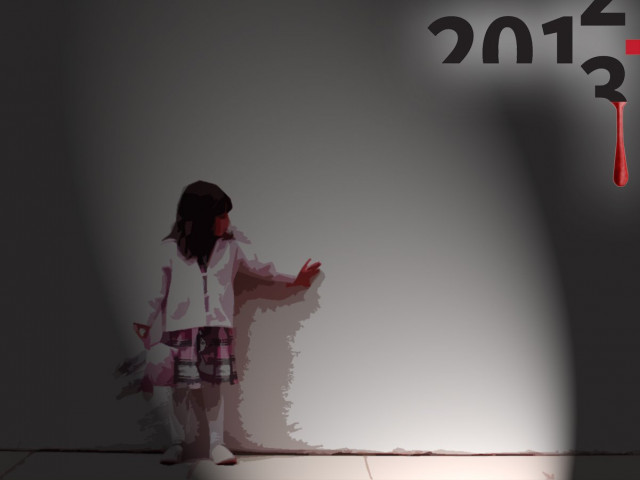170 children went missing in 2012: SPARC
SPARC report highlights deteriorating living conditions for minors.

SPARC report highlights deteriorating living conditions for minors. PHOTO: FILE
These statistics came up in the Society for the Protection of the Rights of Child (Sparc) annual report, titled ‘The State of Pakistan’s Children 2012’, on Thursday. The report documents the deteriorating living conditions for children and how access to necessities, such as education, better health facilities and speedy justice remained a privilege reserved for few.

“The state has failed to provide protection to children as shown by the rising incidents of violence against them,” said lawyer Zia Awan. A total of 5,000 cases of violence against children were reported from across the country of which 3,861 pertained to child abuse. About 19 per cent of them were reported from Sindh.
The report is a comprehensive document based on information taken from news stories and research studies and focuses on several areas that affect children’s wellbeing.
Education
According to the report, a staggering 32.4 per cent children were out of school with 16.6 per cent being girls while only 28 per cent of the buildings were termed fit for teaching. Presenting the major findings of the education report, Rakhshanda Kaukab from Sindh Madressatul Islam University said that the standard of education cannot be improved unless a uniform system is followed in both elite and ‘peela’ [public sector] schools. “The government should declare education as the highest priority and work towards ending differences among students.”
Health
The report also cites Sindh as the worst performer when it comes to providing healthcare to children. The province has the highest proportion of undernourished children (about 40 per cent) while 73 per cent are anaemic. Iqbal Detho of Save the Children pointed out that although the health budget has registered a 100 per cent increase over last year’s allocation, the government failed to come up with any cogent plan. “Only 22 per cent of the population has access to public health services in Sindh.”
The province also suffers from massive food insecurity as 70 per cent households in rural Sindh suffer from lack of adequate food resources. He also rebuked the government for only focusing on polio vaccines and completely ignoring the problem of measles and hepatitis.
Child labour
The last government survey on labourers dates back to 1996 which had estimated that around 3.3 million children were out in the labour market. According to the International Labour Organisation, the figure stood at 12 million in 2012. “If minimum wage is ensured, the labourers would never send out their children for work,”said Piler’s Zulfikar Shah, adding that lands should be allocated to landless farmers.
Sparc’s Nazra Jahan pointed out that children who work as domestic help are invisible labourers and since they are not recognised as laboureres their rights are not given the attention they deserve and no data is available on their numbers. Meanwhile, a bill is lying with the law department that calls for a ban on employing children under 14 years of age.
Juvenile justice
The report also highlights the problems faced by juvenile offenders that include physical punishment, absence of legal aid, trial delays and lack of proper bedding in winters. Sparc national manager Imtiaz Ahmed recommended that minimum age of juvenile offenders should be raised from seven to 12. Experts also called for implementing the laws in place and passing more child-related legislation.
Published in The Express Tribune, June 29th, 2013.



















COMMENTS
Comments are moderated and generally will be posted if they are on-topic and not abusive.
For more information, please see our Comments FAQ